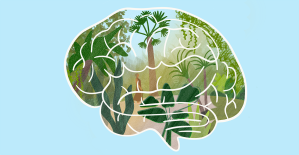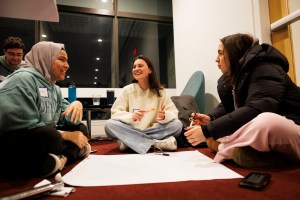Campus & Community
-
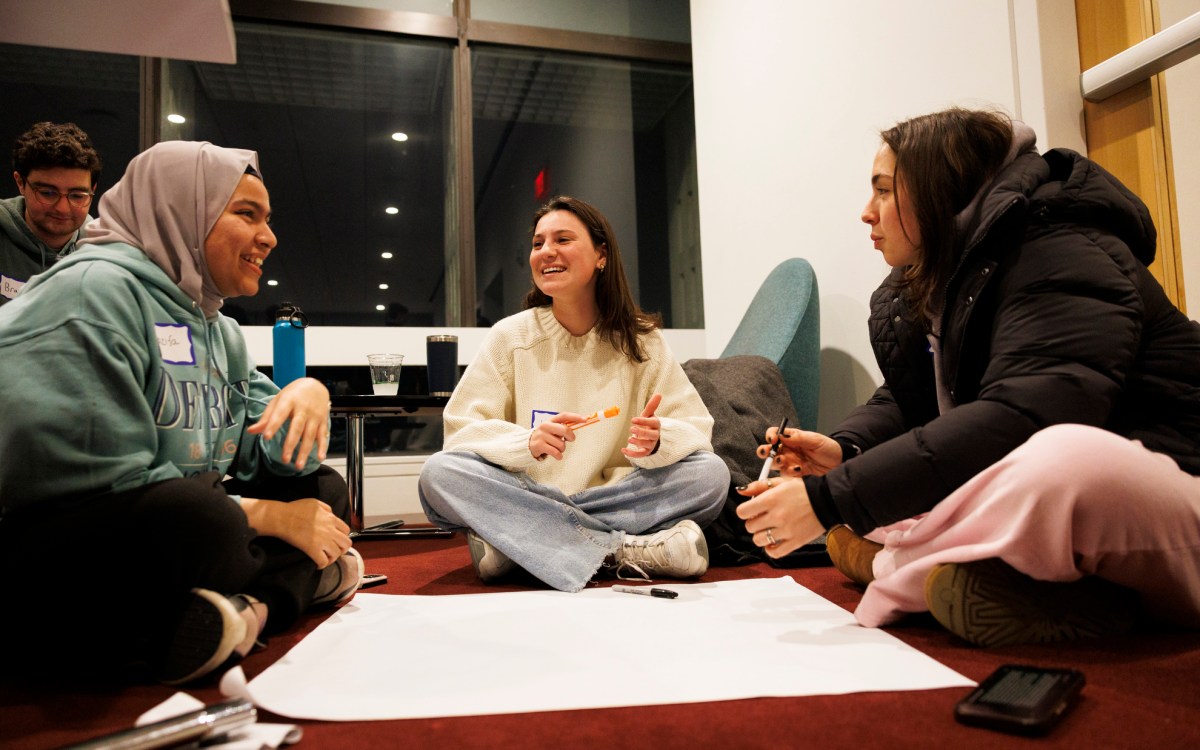
Building interfaith community
New initiative draws students seeking connection across difference
-
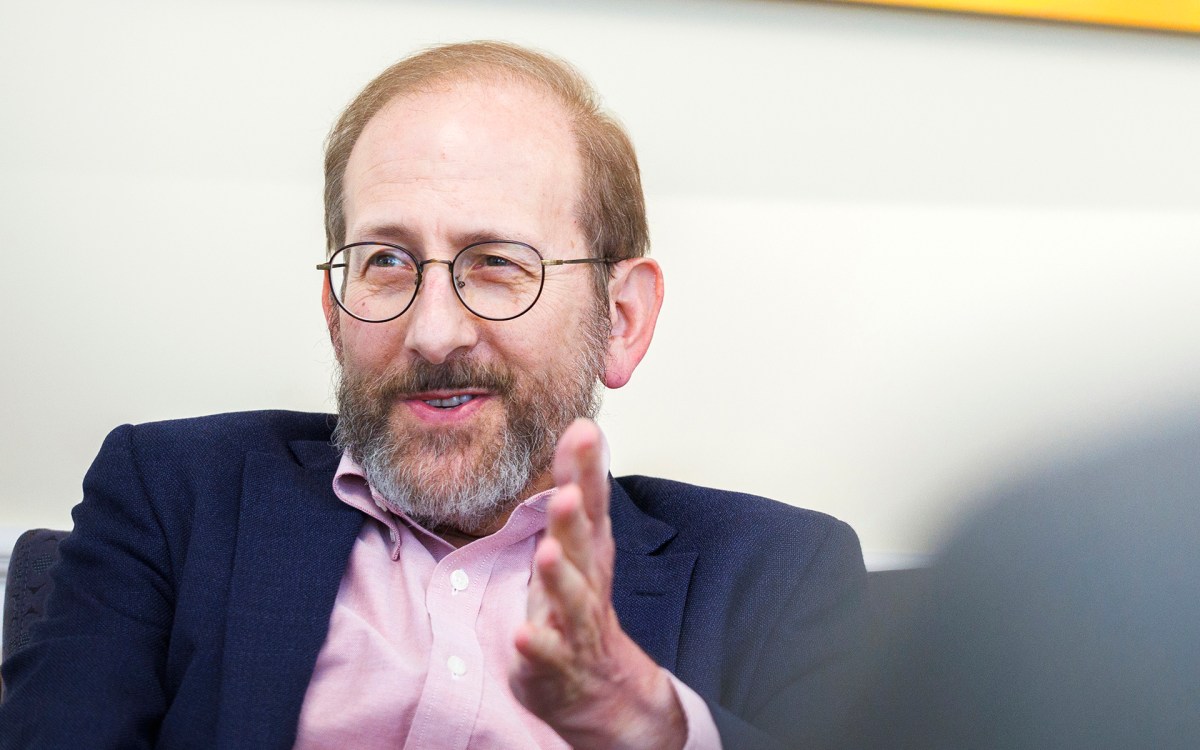
Garber to lead Harvard beyond 2026-27 academic year
‘Our progress has made me prouder than ever to be part of the University — and determined to see us through this uniquely challenging period in our long history.’
-
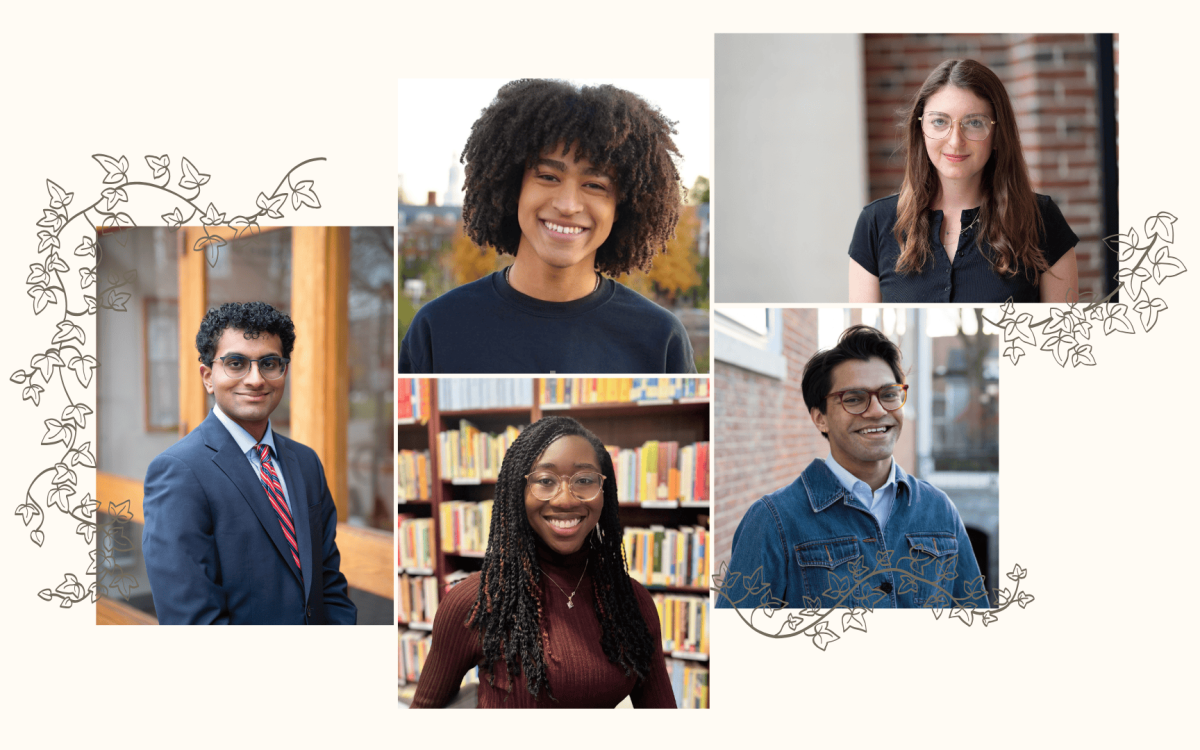
5 from Harvard named Marshall Scholars
Awards for 4 students, 1 alumna — more than any other institution — support graduate studies in the United Kingdom
-
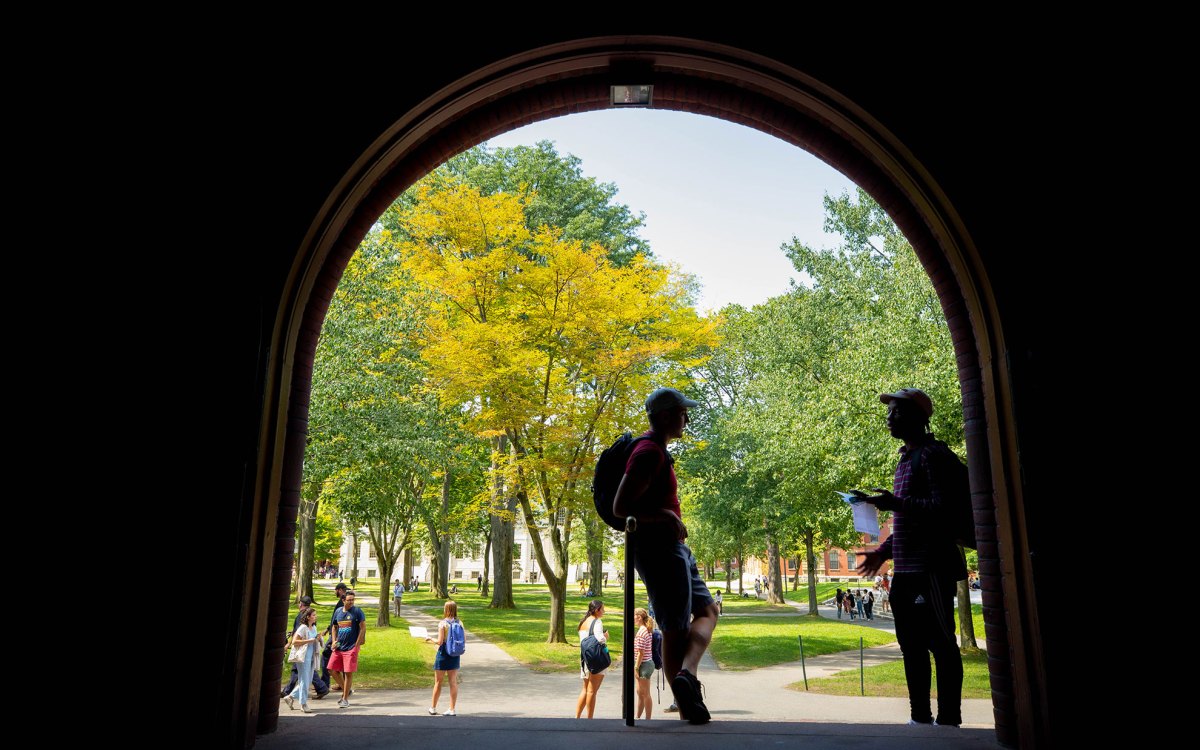
‘Our students are seeking not just to coexist, but to understand’
8 projects win Building Bridges grants to spark constructive dialogue on campus
-
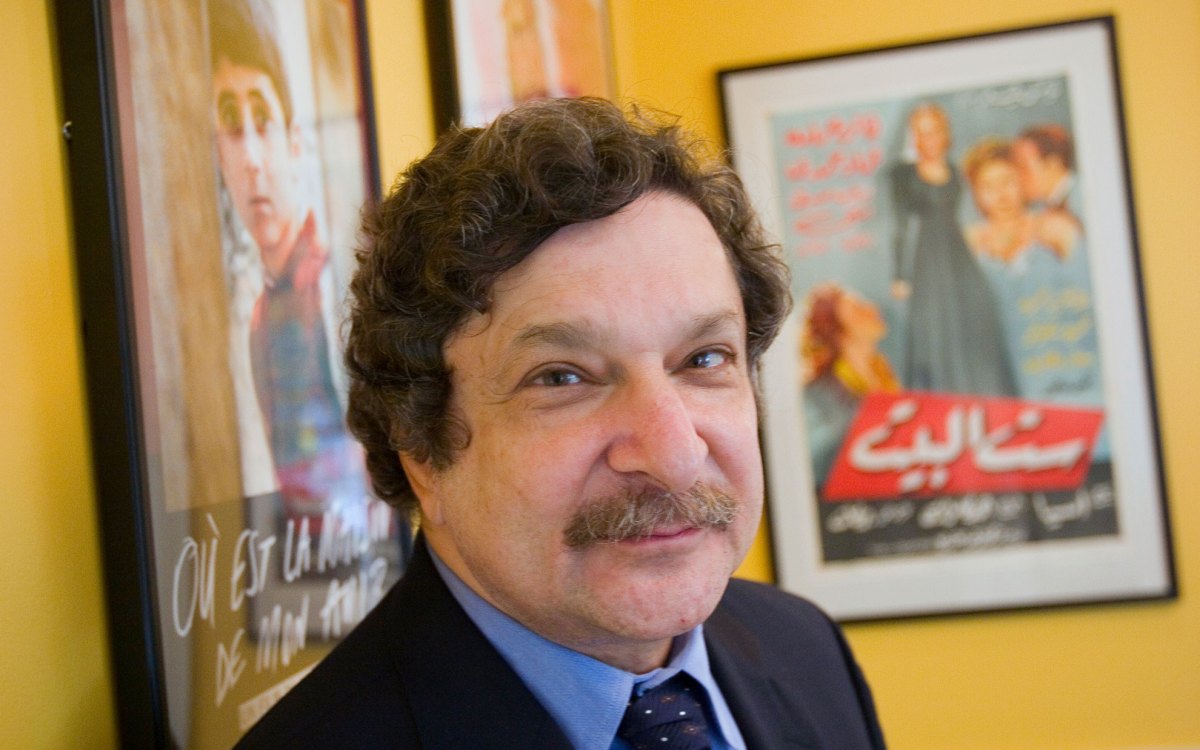
Roy Parviz Mottahedeh, 84
At a meeting of the Faculty of Arts and Sciences on Dec. 2, 2025, the following tribute to the life and service of the late Roy Parviz Mottahedeh was spread upon the permanent records of the Faculty.
-
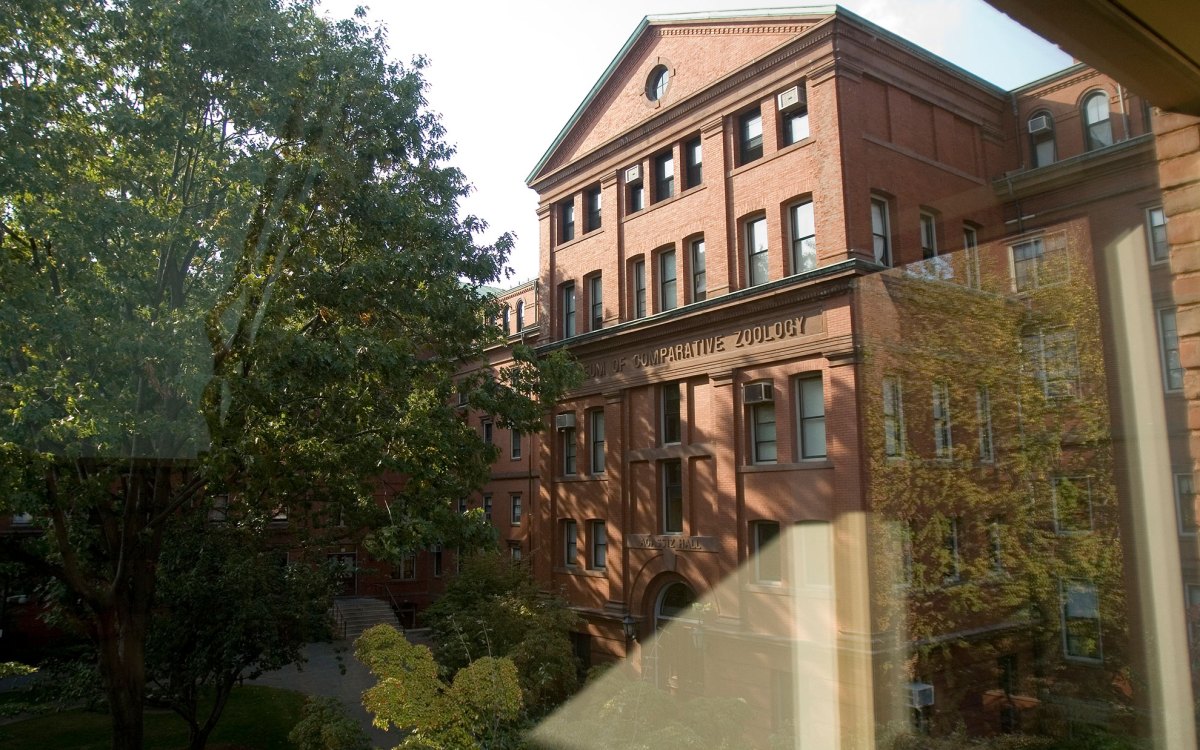
Karel Frederik Liem, 73
At a meeting of the Faculty of Arts and Sciences on Dec. 2, 2025, the following tribute to the life and service of the late Karel Frederik Liem was spread upon the permanent records of the Faculty.
-
RMO to offer presentation on the ABCs of record keeping
Harvards Records Management Office (RMO) will offer a new presentation for office managers and other staff charged with file keeping. The new one-hour presentation, which will be offered on three Thursdays (April 15, July 8, and Oct 28), will provide practical guidance on filing systems, filing rules and procedures, and equipment and supplies. Each session will be held at noon at the Harvard University Archives in Pusey Library. Participants are encouraged to bring brown-bag lunches. Drinks and cookies will be provided. To register online, visit http://hul.harvard.edu/rmo/presentations.html.
-
HLS students hear case before high court does
Harvard Law School, long a training ground for many of the nations sharpest legal minds, last week (March 9) coached some seasoned lawyers preparing a case thats on its way to the U.S. Supreme Court later this month. For the members of the legal defense team arguing the case, the moot court provided a realistic and informative platform for honing their arguments.
-
HLS Library unveils online portrait collection
The Harvard Law School Library has announced the opening of a new exhibition titled The Legal Portrait Project Online. The exhibition is the culmination of an 18-month project to catalog, digitize, and make available the Law Schools 4,000-item portrait collection of lawyers, jurists, and legal thinkers dating from the Middle Ages to the late 20th century.
-
Educator takes tough look at conservatives progressives
Would-be reformers of Americas urban schools are hamstrung by a rigid dogmatism that pits progressive against conservative, parent against teacher, and academic against politician, Duke Universitys Charles Payne told an audience at the Harvard Graduate School of Education (GSE) Monday night (March 15). In a lecture called A Curse on Both Their Houses: Liberal and Conservative Theories of Urban School Change, Payne toppled some sacred cows on both sides of the debate and called on schools of education to lead a new brand of urban school change.
-
Seven are named Soros Fellows
Seven Harvard-related students are among the 30 recipients of this years Paul and Daisy Soros New American Fellowship. Recipients receive up to a $20,000 stipend plus half-tuition for as many as two years of graduate study at any institution of higher learning in the United States.
-
The great debate
The strained relationship between the United States and the United Nations has often dominated headlines. The U.S., as the worlds most powerful nation, is the international peacekeeping bodys biggest supporter and its largest detractor – a riddle that has long puzzled politicians, journalists, academics, and the general public.
-
This month in Harvard history
March 3, 1906 – The “Harvard University Gazette” (not yet in tabloid format) registers for second-class mailings at the Boston Post Office. March 1952 – The Harvard Corporation votes to…
-
Crimson clicking in ECAC’s
The Harvard mens and womens hockey teams both managed impressive series sweeps in ECAC quarterfinal action this past Saturday (March 13), albeit in dramatically different ways. It took the Crimson men a come-from-behind win in overtime to dismiss favored host Brown, 3-2, in the teams second match-up (Harvard took the first, 4-2, on March 12), while the women – ranked second in the nation – advanced to the semifinals with a 4-1 win over Cornell. A day earlier, Harvard delivered the visiting Big Red a 9-1 drubbing in game one.
-
Gene responsible for blood supply found
Researchers at Harvard-affiliated Dana-Farber Cancer Institute have pinpointed a crucial gene on which the normal development of the bodys entire blood system depends. If the gene is absent, even the most basic blood stem cells cannot be generated. In a mutated form, this gene can cause a rare and devastating form of leukemia.
-
1,000 HLS students will help monitor 2004 election
In an effort to prevent the confusion and mistakes that marked the 2000 election, a group of Harvard Law School students has launched a project to ensure that 2004 presidential election voters are given proper access to the ballot. The new group, Just Democracy, plans to recruit and place more than 1,000 law students with expertise in election law at what they believe could be high-risk polling places around the nation.
-
Looking at Germany, Japan, Iraq: A tale of three occupations
Soon after the Bush administration revealed its plan to overthrow Saddam Hussein and bring democracy to Iraq, commentators began comparing this initiative with Americas occupation of Germany and Japan following World War II. Depending on ones perspective, these comparisons could be positive (Weve done it before and we can do it again) or negative (The situation in 1945 was entirely different you dont know what youre getting into).
-
HASI helps ‘reboot’ lab for high-schoolers
Thien Phan, Marcos Posada, and Columbia Nunez, computer whizzes with the Brighton High School PowerUP Computer Center after-school program, enjoy their new and improved computer lab. The new rebooted center, dedicated yesterday, was made possible through a partnership with the City of Boston, the Allston Brighton Community Development Corporation (ABCDC), with funding from the Harvard After School Initiative (HASI). The lab gives Brighton High students state- of-the-art computer classroom space, provides space for an after-school program that teaches high schoolers Web development and programming skills and after-hours computer courses for community residents, both taught by Allston-Brighton CDC staff. HASI also supports the after school program with technical support through Harvard faculty. Because of great partnerships in this city, this unique center gives an entire community access to state-of-the-art technology. When cities, communities and institutions work together, there is no limit to what we can do, said Boston Mayor Thomas M. Menino at a ribbon-cutting ceremony on March 16.
-
Kids more involved in politics
Young adults are substantially more involved in the 2004 presidential race than they were in the 2000 race. If the trend continues, higher turnout in November is nearly a certainty, according to the Shorenstein Centers Vanishing Voter Project.
-
Yo-Yo Ma to receive Arts Medal
Internationally acclaimed cellist Yo-Yo Ma will receive the 10th annual Harvard Arts Medal on May 9.
-
Academic turns city into a social experiment
Antanas Mockus had just resigned from the top job of Colombian National University. A mathematician and philosopher, Mockus looked around for another big challenge and found it: to be in…
-
On the rocks
Harvard and Radcliffe crew coaches perform an annual rite of spring, breaking up the ice on the Charles to allow their teams to practice.
-
Pablo Neruda’s songs of love and despair
In honor of the centennial of the birth of poet Pablo Neruda, the George Edward Woodberry Poetry Room will host The Poems of Pablo Neruda on March 17.
-
The Big Picture
After six albums and years touring the country on the folk circuit, Russell Wolffs music means a lot to him. But a serious illness over a year ago gave Wolff new perspective.
-
Corriero’s clutch play is timeless
Team player Nicole Corriero 05 entered the sports worlds exclusive last-second-hero club this past Saturday (March 6) at the Bright Hockey Center. Deadlocked at 0-0 against Yale in the final period, the junior left winger somehow found the back of the net with just seven seconds remaining to give the Harvard womens hockey team an almost unbelievable 1-0 win.
-
Sports briefs
Jantzen pins third EIWA title, on to NCAA’s Senior wrestler Jesse Jantzen became the first Harvard wrestler in history to win three-straight EIWA titles by defeating Brown’s David Dies, 5-2,…
-
Simmons, Harvard team up to help devastated Iraqi libraries
Responding to the devastating effects of war on Iraqi libraries, the Harvard University Library (HUL) system and Simmons Graduate School of Library and Information Science (GSLIS) are launching a joint program to provide training for Iraqi librarians and archivists.
-
MAC renovations to begin in June
The Harvard Department of Athletics has announced plans to expand and improve fitness facilities at the Malkin Athletic Center (MAC). The improvements will significantly increase the space available for both exercise and weight training.
-
When the fog clears
Learn from your mistakes. Pass the lessons on to those who may face similar problems in the future. And dont be afraid to challenge authority.
-
The world on her strings
To say that Janet Sung plays the violin well is like noting that Baryshnikov is graceful or that Ernest Hemingway knew English. Sung 95 has appeared as a soloist with the National Symphonic Orchestra of Bashkortostan in Russia and Pusan Philharmonic in South Korea, to name a few. Shes given recitals across the globe, from Lincoln Centers Alice Tully Hall to Beau-Rivage Palace in Switzerland. And last week, she gave three undergraduates a private lesson when she came to Harvards campus as this years Clifton Visiting Artist, which is sponsored by the Office for the Arts through its Learning From Performers series. Established in 1998 by Roger Clifton 57 and his wife, Sophie, the Clifton Visiting Artist program brings emerging alumna artists to Harvard.
-
Portrait of the artist as molecule
During the early 1980s, artist Gary Schneider, at a creative impasse in his own work and faced with the necessity of earning a living, decided to capitalize on his darkroom skills and set himself up in business as a printer of the work of other photographers.
-
Newsmakers
Harvard Foundation names Scientist of the Year The Harvard Foundation has honored noted mathematician Jonathan David Farley ’91 as its Distinguished Scientist of the Year. A visiting associate professor of…
-
Water makes biological splash on Mars
Finding new signs of water on Mars was not unlike finding a needle in a haystack. Now scientific explorers and their robot helpers face a trickier task, looking for life, a needle they are not even sure is there.
-
Academic turns city into a social experiment
Antanas Mockus had just resigned from the top job of Colombian National University. A mathematician and philosopher, Mockus looked around for another big challenge and found it: to be in charge of, as he describes it, a 6.5 million person classroom.
-
Faculty council notice for March 10
At its ninth meeting of the year (March 10), the Faculty Council discussed with Professor Thomas Kelly, chair of the Department of Music, a proposed agreement with the New England Conservatory of Music under which undergraduates would be able to complete an A.B. degree at Harvard and a Master of Music degree at the Conservatory in five years.
-
Research grants available through Schlesinger Library
The Schlesinger Library on the History of Women in America at the Radcliffe Institute for Advanced Study is now accepting applications for its Carol K. Pforzheimer Student Fellowship grants. Intended to encourage Harvard College students to use the resources of the Schlesinger Library, the fellowship awards $100 to $2,500 to cover research expenses, or as a stipend in lieu of summer employment, to enable the recipient to pursue research in the librarys collections.

